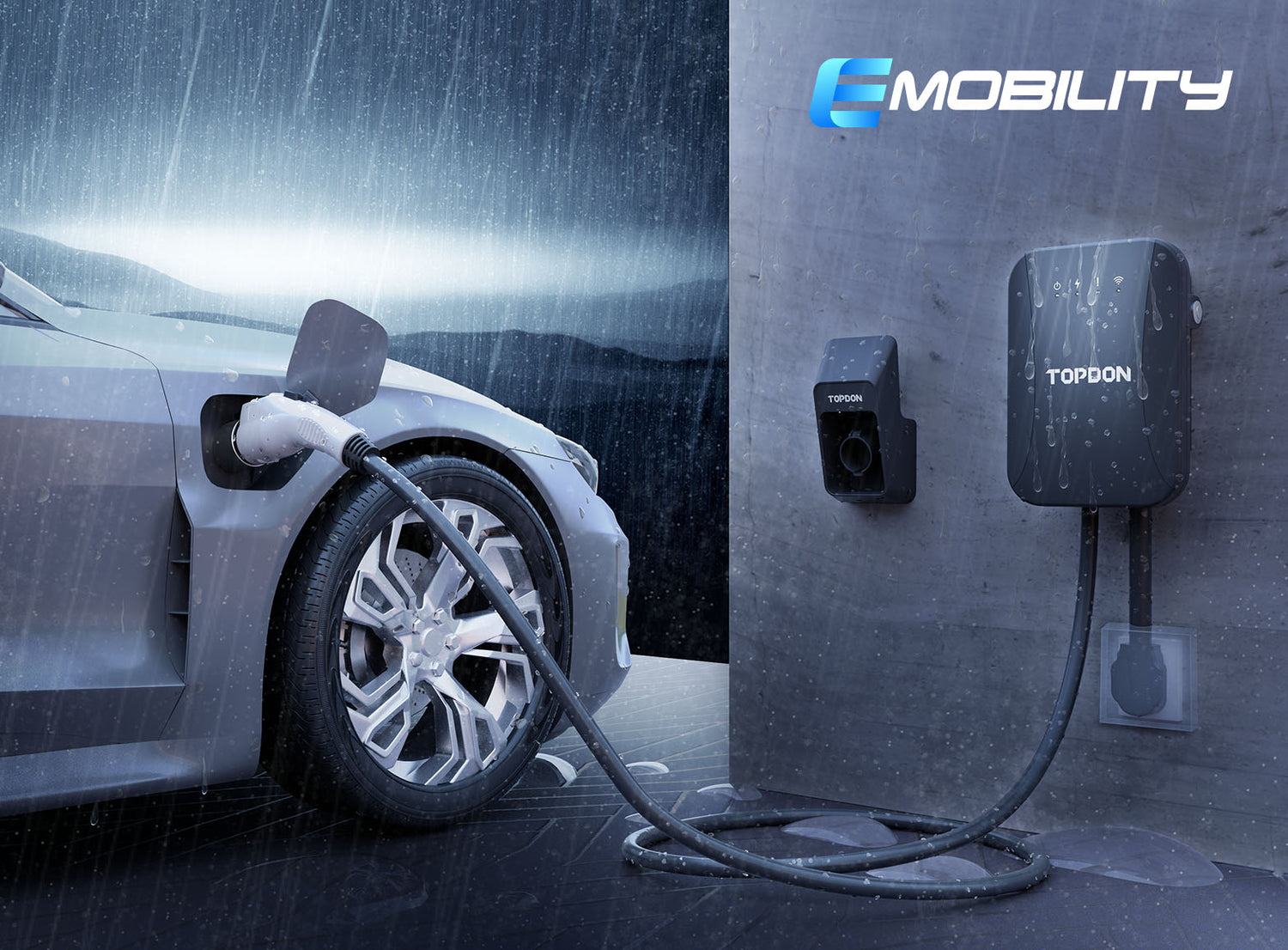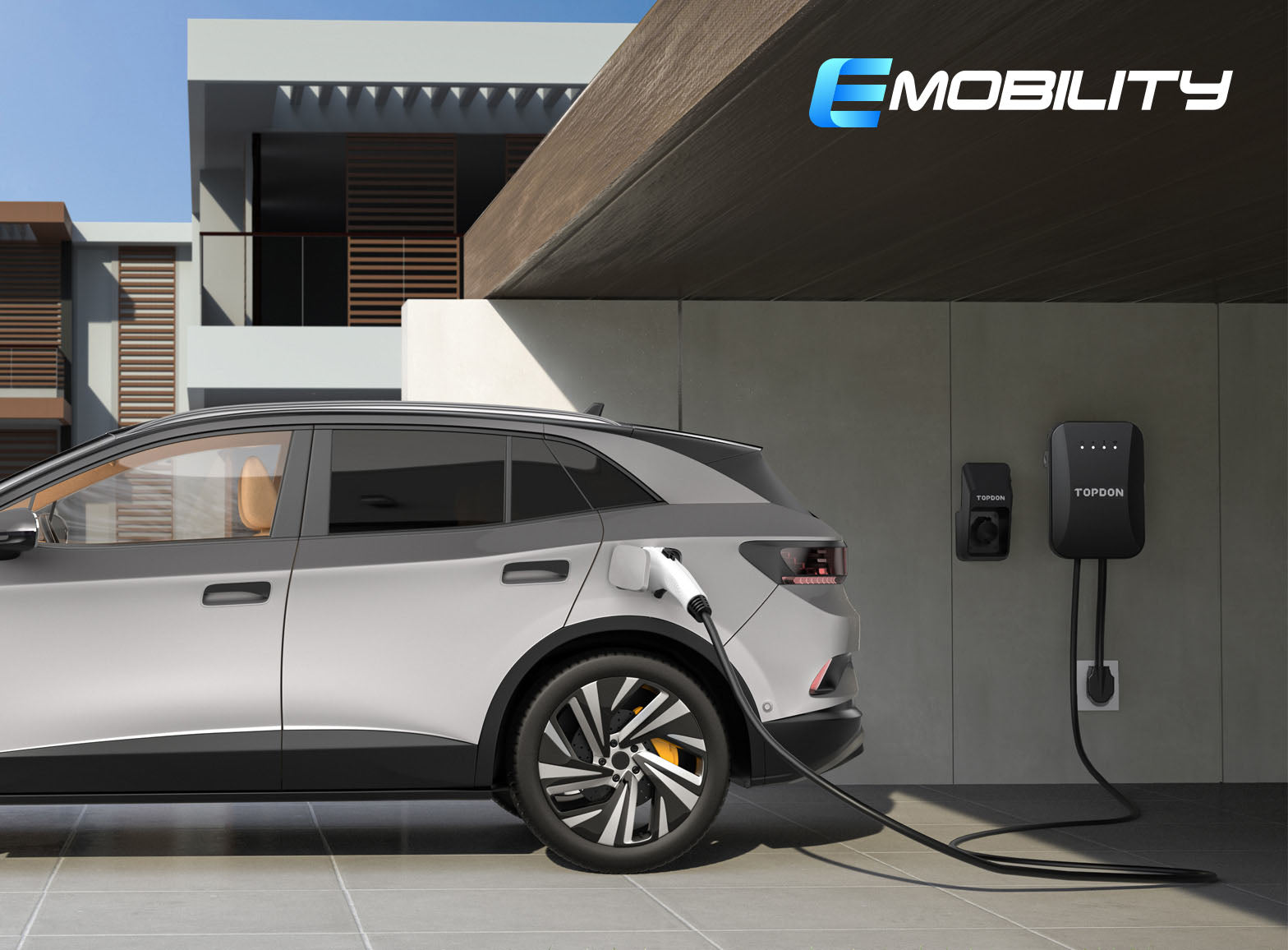When buying an Electric or Plug-in vehicle, your home is now your fuel station. Getting the right EV charger for your needs is essential to having your EV battery ready every time you start your journey.
A few factors need to be considered before buying the right charger. These include cost, installation time, charging speed, connector type, style, and compatibility. All of which are common. But diving deeper, chargers need to be certified, app controlled, ice, water, and dust resistant for harsher climates too.
Compatibility
Firstly, your charger needs to be compatible with the types of vehicles you are charging. Type 1 and Type 2 are the most common fast home charger connections. These chargers are rated up to 22kW charging speeds but can be as low as 7kW. With typical charging times of 2-8 hours depending on the vehicle you are charging.
Using single or three phase AC charging, fast chargers are tethered or untethered. Common placement of these chargers is at home, workplace, hotels, car parks and more.
Rapid Chargers are much quicker at charging your EV and are found in typical fuel station locations, or bespoke rapid charging stations across the globe. They are not typically used at home due to the cost and infrastructure needed to build them. But they charge 0-80% in 30 minutes or less, with speeds now up to 350kW.
Pick up an EV charger for your home that is compatible with both Type 1 and Type 2 charging. As you never know when you will transition to a new EV that has a different charge port or have guests over that have a different vehicle brand to your EV.
Tesla also uses a different type of charge socket and now you can buy an adapter for Type 1 or Type 2 charging depending on where you are in the world. This covers all bases and makes your home charger future proof.
Certification
Lots of confusing acronyms are in the certification space. In basic terms, they show the charger has been tested to industry standards and have protection in harsh climates and during rainfall.
UL Listed
When a home charger is UL Listed it is tested against industry standards. UL stands for Underwriter Laboratories, and the US company has been around since 1894. UL make sure products are safe to operate. Examples include correct wire sizing, current handling and assessing the manufacturing process before they stamp their seal of approval.
IP Rating
IP65 Rating is for water and particle ingress. This is common amongst EV chargers that are designed to be outdoors. It means the charger has been tested against water and dust. IP stands for Ingress Protection and the first number, the 6, is for solids (6 being the highest rating) and the second number, 5, is for liquids. Meaning that an IP65 charger has the highest ability to withstand dust ingress and is sealed against low pressure water jets from all directions.
NEMA TYPE 4
For enclosures such as your EV home charger, NEMA TYPE 4 is a strict standard against harsh climate conditions. Having NEMA TYPE 4 certification protects against windblown dust and rain, splashing water, and hose-directed water. It also ensures your charger is undamaged by ice formed on the enclosure. Ideal for functioning safely in all climates.
App Control
Our smart phone is also our ID, wallet, ticket machine and now it can be used to control your home EV charger. With App Control on home chargers, you decide on charging times, charging speed and track all useful data about your car’s charging status.
App Control is ideal for setting charging times during off-peak electrical hours (overnight). This is where some electricity companies offer a cheaper tariff as the demand is lower during these hours. Also, across the globe, energy prices are fluctuating and having control of your charging cycles puts you in control of how much you spend.
Users may incorporate a wall battery and solar panels as part of their home EV charging setup. App controls can determine what energy is being fed from the car. Controlling either solar, battery or grid energy to charge your EV at the cheapest rates.
PulseQ AC - The Ultimate Home EV Charger.
The PulseQ AC charger has all of these features and more. With a UL Listed Level 2 AC EV Charger, you know it will be available when relied upon. The CE, LVD, RED, and RoHS certification for EU market makes it ideal for all conditions and can be safely installed in your home or workplace.
Expanded Compatibility with SAE J1772 (TYPE1) and IEC62196-2 (Type 2) Connector, the PulseQ AC charger comes with up to 5.0 (7.5m optional) length charging cable for even the largest of driveways. Compatible for up to +55°C and charging cars in the most extreme climates.
In a cold country? No issue! PulseQ AC Home conforms to NEMA TYPE 4 standards/IP 65 Rating. Making it suitable both for indoor and outdoor applications. Operating as low as -22°C, with storage down to -40°C means you can still charge at home, in any climate!
The easy-to-use App is compatible with both iOS and Android and is as simple as plug and play. Showing charging time, rate, battery percentage and cycles. It puts you in control. Activate the charging time when you want to. Ideal for those in areas with cheaper off-peak electrical tariffs or houses with solar panels on sunny days.
The RFID version also works for Dealers across the EU or US for an easy charging solution on your forecourt. Both EV chargers can be purchased from the local dealers and connected at your home or workplace quickly and easily.
The minimalist sleek design displays the essential charging status. Including standby, charging, fault, and network connection. With a low profile, it fits even in the smallest of gaps and seamlessly fits in to your home and garage setup. Head to our online product page today to pick up your next home Wall box Charger from PulseQ!



Leave a comment
This site is protected by hCaptcha and the hCaptcha Privacy Policy and Terms of Service apply.